Switzerland wants to play key role in rebuilding Ukraine
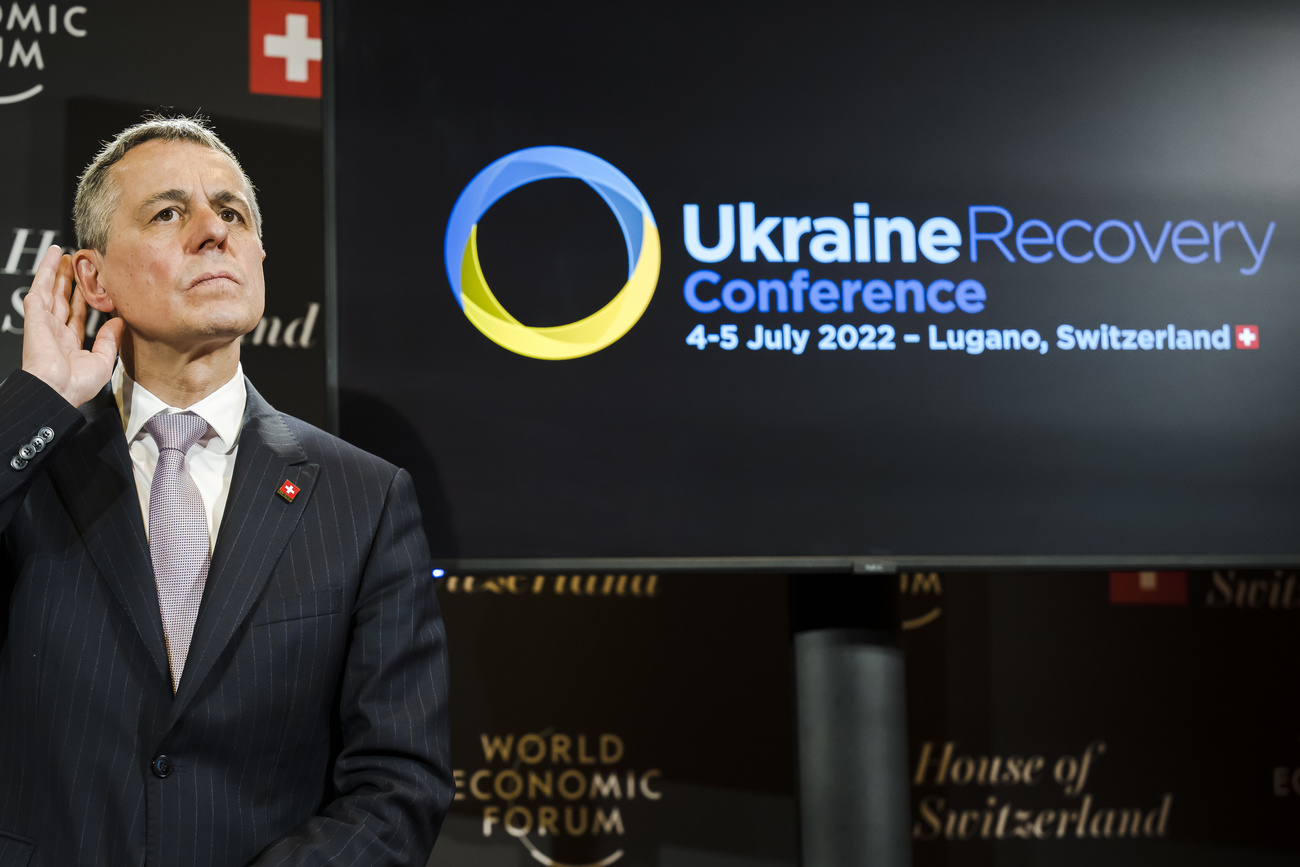
The Swiss are hosting a major international conference on reconstruction in Ukraine at the beginning of July. The agenda and a participants’ list are currently taking shape. However, it’s unclear how much international enthusiasm this event – and its aims – will garner in the end.
International support for the reform process in Ukraine predates the war. In recent years partner countries have come together and taken turns hosting regular conferences to review developments in a range of areas, from banking to digital transformation, triggered by the 2013 Maidan Revolution.
The 5th Ukraine Reform Conference was due to take place in the southern city of Lugano in July. Switzerland was determined to go ahead with the meeting despite the Russian invasion. President Ignazio Cassis has decided to refocus priorities and reframe the event as a recovery conference.
Zelensky, Macron, Johnson and the UN
Cassis, who also heads the Swiss foreign ministry, says 41 countries and 19 international organisations, including the World Bank and the United Nations, have received invitations to the conference. He envisions a high-level meeting with ministers, prime ministers and presidents in attendance. Cassis told Swiss public television SRF that Ukrainian President Volodymyr Zelensky as well as the prime minister, Denys Shmyal, have agreed to join, either in person or by video link.
Cassis also invited British Prime Minister Boris Johnson, who has not yet confirmed if he himself will attend or if he will send a representative. French President Emmanuel Macron is also on the participants’ list, according to media reports.
“Rebuilding Ukraine poses immense challenges,” said the Swiss president. Indeed, Ukraine’s recovery depends on more than just large sums of money. Some of the ideas being floated, however, do not have unanimous support – this includes using the confiscated assets of Russian oligarchs to fund reconstruction.
Swiss-EU impasse
The conference could further strain already tense relations between Switzerland and the European Union. As hosts, the Swiss are clearly treading on territory that Brussels has claimed as its own. During the World Economic Forum (WEF) annual meeting in Davos last month, EU Commission president Ursula von der Leyen made it clear that she wanted the EU to play a leading role in Ukraine’s reconstruction. “The European Union has a strategic interest in leading the reconstruction effort,” she said.
It remains to be seen how well Cassis’ initiative fits in with the EU’s plans. He calls the Lugano conference the “international kick-off for the recovery process in Ukraine”.
Who sits at the table?
Will the conference create competition between the Swiss and the EU? The EU Commission is currently setting up a recovery platform to be managed by the EU and Ukraine. Multilateral organisations such as the International Monetary Fund (IMF) and the World Bank, which have likely received invitations to Lugano, will also reportedly be involved in the EU platform. “We have to decide who will be allowed to sit at the table with Ukraine,” Cassis told SRF.
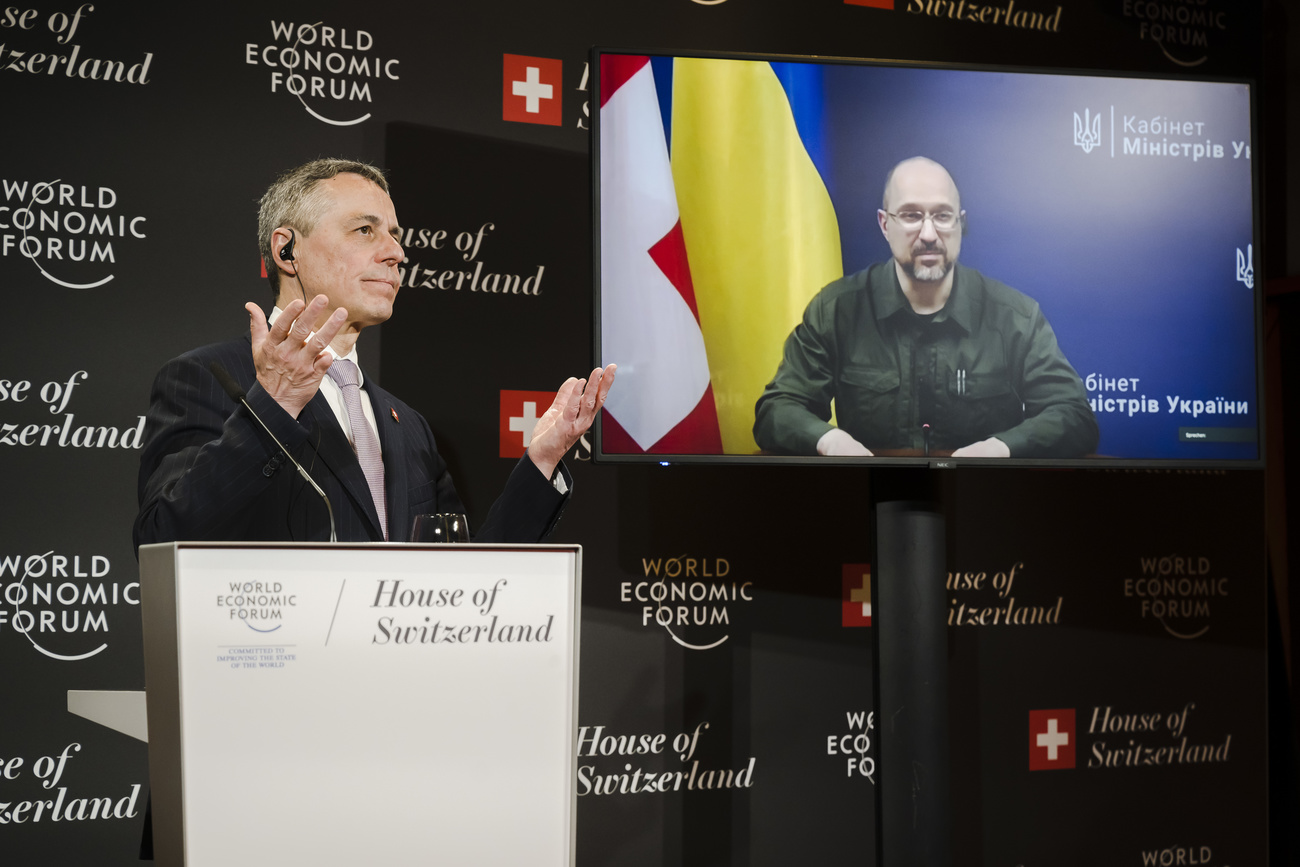
‘It’s not about money’
While the EU is already discussing where to find funds for reconstruction, Cassis has intentionally avoided talking about financing, suggesting the amounts were only symbolic. “How much will Switzerland contribute financially?” a journalist at SRF asked him. “It’s not about money,” Cassis replied. “It’s about getting the process started.”
Yet an appeal on the Ukraine Recovery Conference websiteExternal link to “mobilize funds through pledging to implement Ukraine’s Recovery and Development Plan” clearly has the backing of Switzerland and Ukraine. “All governments should be able to make a pledge, but this is more symbolic,” said Cassis. When prodded about Switzerland’s financial contribution, he responded: “Our biggest contribution is hosting this conference.”
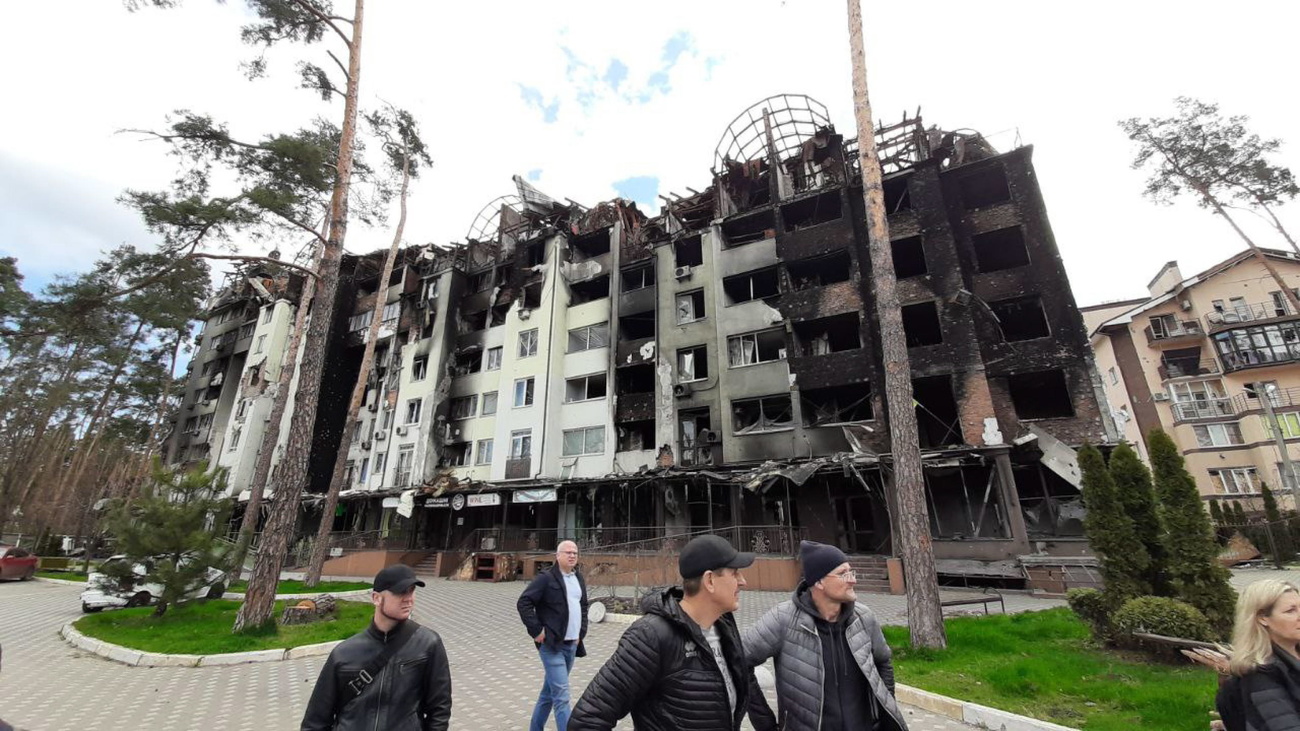
It is clear that funds for reconstruction will inevitably and quickly land at the heart of discussions given the sheer amount that is needed: Shmygal has talked of more than $600 billion (CHF582 million) while Cassis refers to estimates of up to $1 trillion. Funding is also the first thing on Zelensky’s mind. At the beginning of May, he said: “We need a strategic international support plan for Ukraine that will be a modern analogue of the historic Marshall Plan. It is money, technology, expertise and growth opportunities that are needed.” US Treasury Secretary Janet Yellen also called for “support for recovery on the scale of the post-World War Two Marshall Plan for Europe”.
Controversial confiscations
Discussions have already begun on what shape this plan could take. President Zelensky has talked about a model whereby individual countries, cities or companies would sponsor individual cities or firms in Ukraine. He has also suggested using frozen Russian assets to do this, including Russian foreign exchange reserves that add up to hundreds of billions of dollars and assets seized from oligarchs.
Politically, the plan is controversial. Both US President Joe Biden and von der Leyen in Brussels agree with the principle behind it but they are also aware of the pitfalls tied to expropriations. When journalists in Davos asked Cassis what he thought about this plan, he again remained vague: “This is a global question, and Switzerland will announce its position at the appropriate time.”
Translated from German by Billi Bierling

In compliance with the JTI standards
More: SWI swissinfo.ch certified by the Journalism Trust Initiative









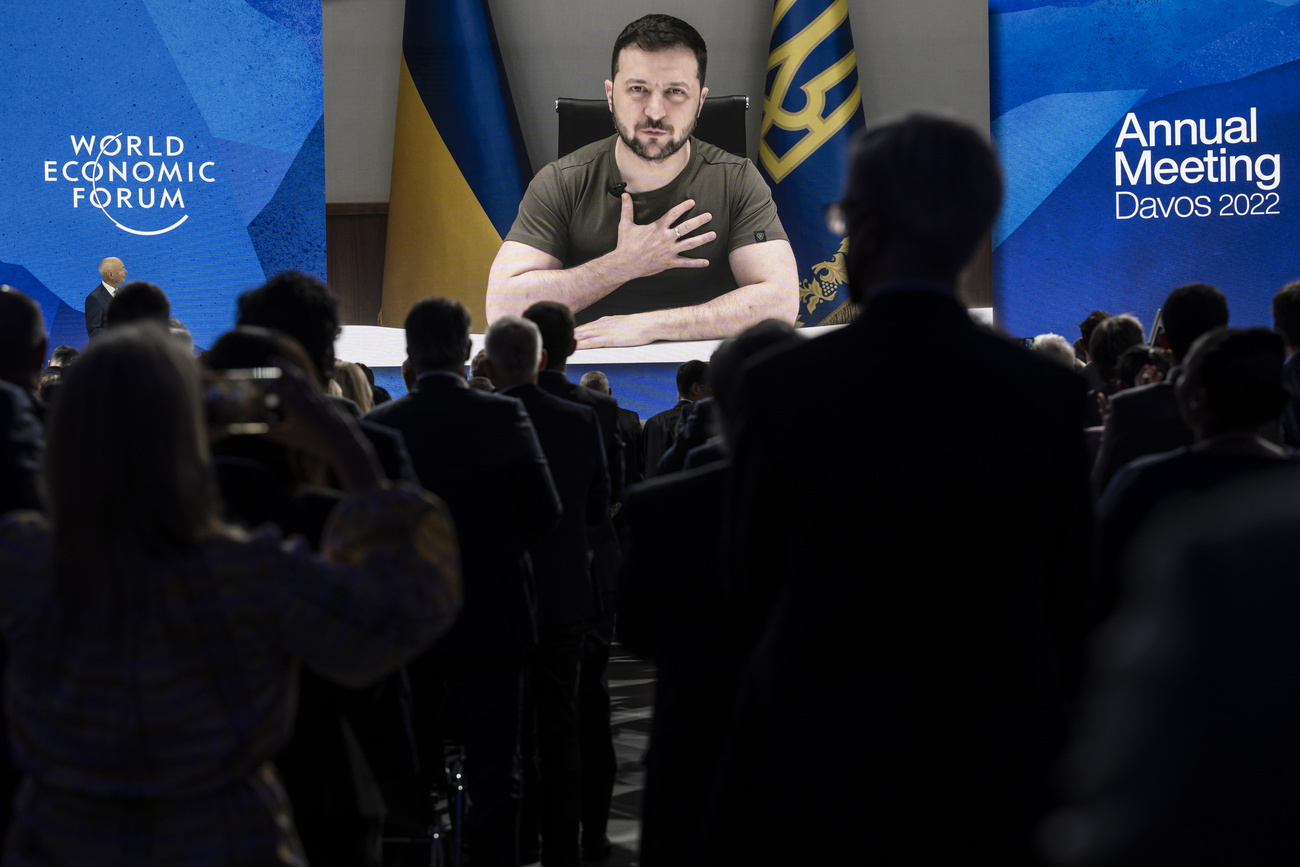
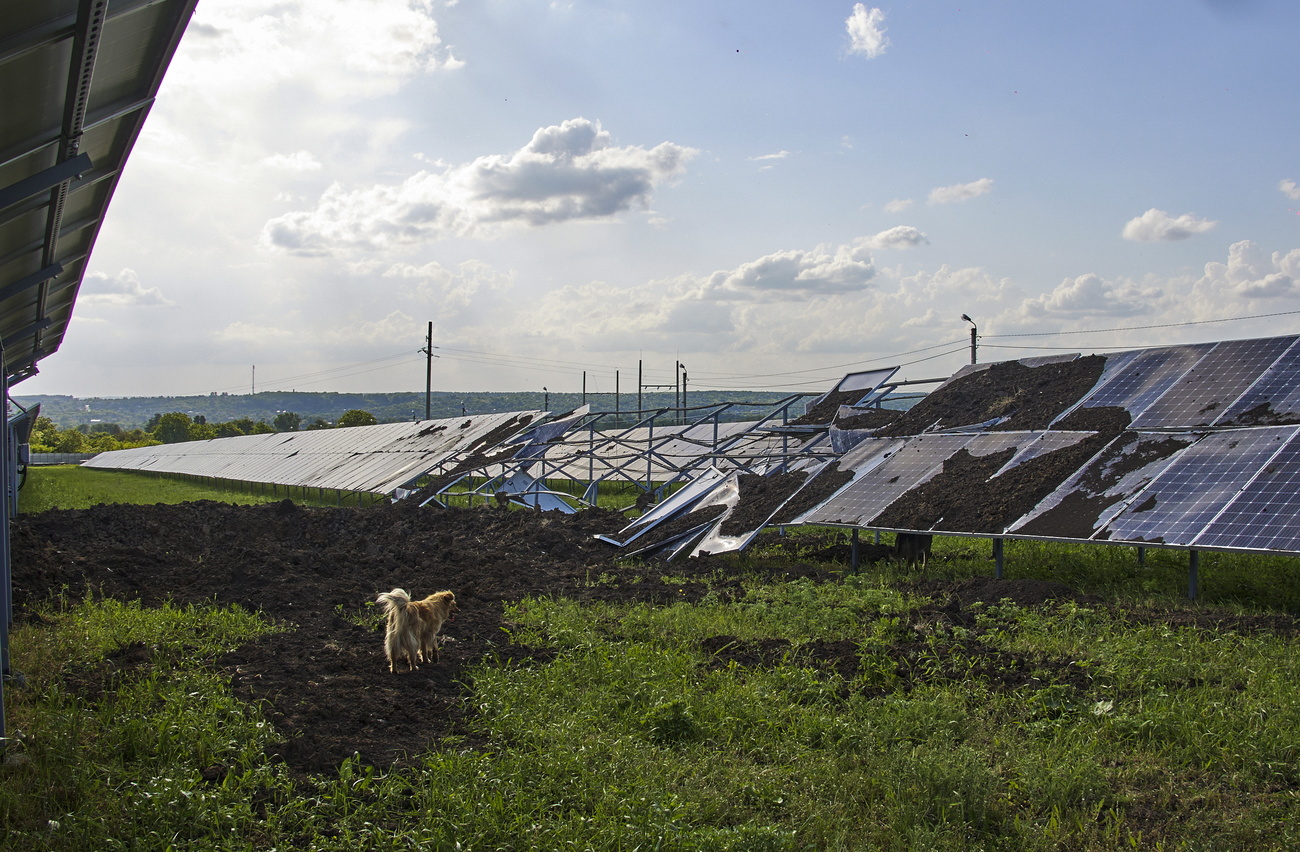
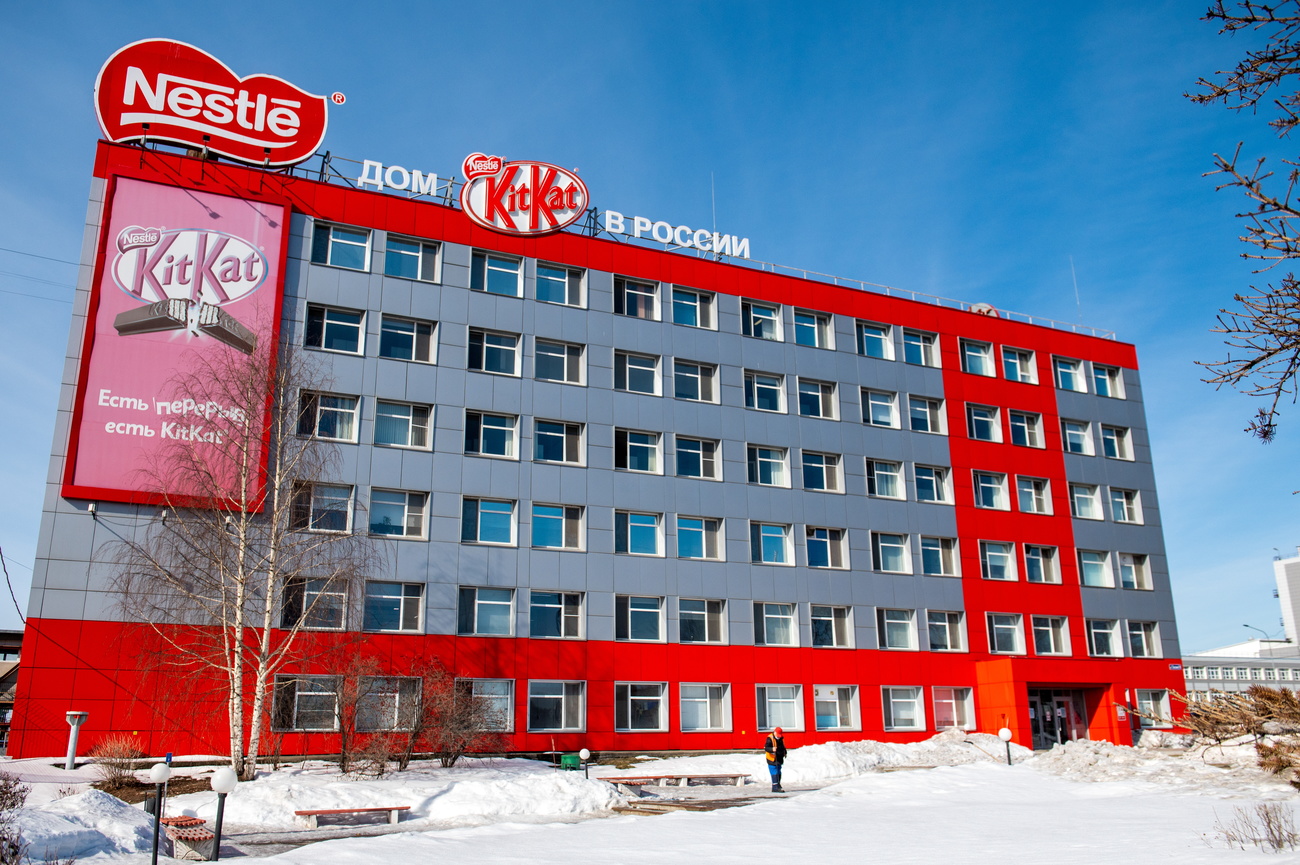

You can find an overview of ongoing debates with our journalists here . Please join us!
If you want to start a conversation about a topic raised in this article or want to report factual errors, email us at english@swissinfo.ch.